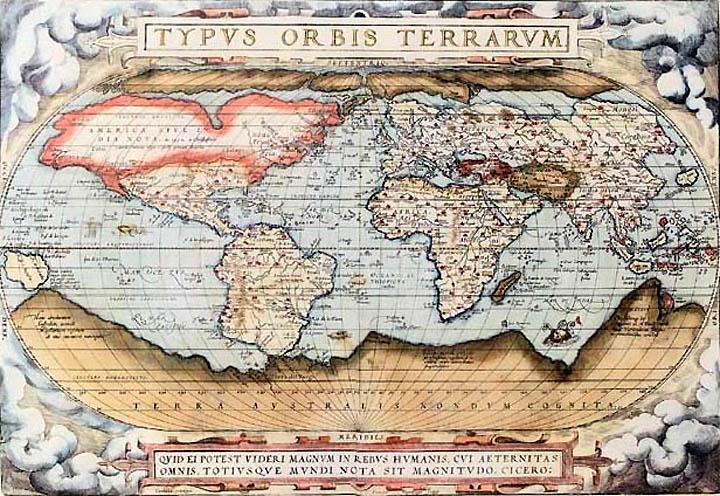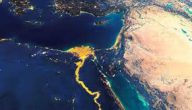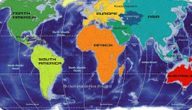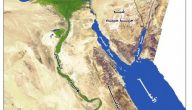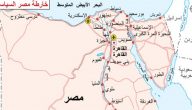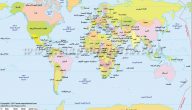معنى كلمة جغرافيا بالانجليزي تعريف الجغرافيا الطبيعية باللغة الإنجليزية سوف نقدم ذلك في هذه السطور التالية.
محتويات المقال
معنى كلمة جغرافيا بالانجليزي
Geography is Arabized as the science of landmarks is a science that studies the land and the features of the earth, in which the description of the land is studied from the aspects of urbanization in the hands of humans, which are the human (geographic) features and the phenomena of nature, which are the natural (geographical) features or in an easy way the land and natural (physical) phenomena and the tricks of dealing with them and the human manifestations and the images of urbanization on them The word originates from the Greek language, translated in Arabic as “description of the earth”. It was also in its infancy, where travelers described and recorded their observations about the countries and regions they visited.
تعريف الجغرافيا الطبيعية باللغة الإنجليزية
Physical geography or physiogeography is the science that studies the natural phenomena on the surface of the earth in terms of the distribution of land, water, terrain, surface forms, the atmosphere and the biosphere, which did not interfere with man. Physical geography aims to understand the shape of the Earth, its climatic changes, and the characteristics of its flora and fauna.
مجالات الجغرافيا الطبيعية بالانجليزي
Geomorphology: It is the science that studies the shapes of the Earth’s surface, its genesis, its evolution, and the factors that affected it.
Hydrology: It is the science that studies the distribution, sources, movement and quality of water on the surface of the earth.
Glaciology: is the science that studies the distribution of ice on the Earth’s surface and its effects on it.
Biogeography: It is the science of distributing living things geographically.
Climatology: It is the science that studies the state of the atmosphere in terms of heat, wind, humidity and rain for a period that starts from one month and may reach (33) years (climatic cycle).
Meteorology: It is the science concerned with the study of atmospheric phenomena, which are the observed weather events, including light phenomena, and were explained by meteorology.
Soil study: It is the science that studies soils and their geographical distribution and classification in terms of their colour, characteristics and origin.
Oceanography: The branch of Earth science that studies the oceans.
Quaternary science: It is an interdisciplinary science that deals with the study of the Quaternary era in the last 2.6 million years.
Landscape ecology: is the study that includes geomorphology and ecology and is applied to landscape design and architecture.
Petrology: It is the science that is concerned with the study of rocks and the study of their properties, characteristics, their cycle in formation, and knowledge of the minerals that make up each rock.
Coastal geography: The science that studies beaches.
Earth division: It is a science that studies many topics related to the size, shape, dimensions, interior, magnetic field, and temperature of the Earth.
Paleogeography: It is the science that studies the geographical development of the Earth during geological times.
Astrogeography: It is a science that studies the Earth as one of the planets of the solar system.
أهمية علم الجغرافيا بالانجليزي
Geography is no longer that science that is concerned with describing phenomena in a superficial way away from reality, but rather it has become that specialty that is in line with modern scientific development based on analysis, measurement, linkage and the use of modern models and theories. About the great preoccupations of man, due to the ability of geography to adapt to the various sciences, as it represents a solid link between these sciences, and it harnesses all of them to serve them and takes from them what serves them and distinguishes them from others. Recent years have witnessed major transformations in the geographical approach and scientific content, as well as in the methods that It depends on it in achieving goals and objectives, and perhaps one of the reasons for these transformations is also the great development that occurred in the human content, as geographers began to treat topics that were not known yesterday, even as if the observer of the geographers’ work senses that the increasing interest in focusing on the study of phenomena and different natural and human subjects in a way that is different from what It was in the past thanks to their use of advanced quantitative methods in their research using كانت For statistics, automated media, mathematics, models, engineering, nature and chemistry, and this development in the use of such means had important results that resulted in advancing the wheel of geography and making it a science in line with the age of technology, until some called this shift in the use of means and methods the term (quantitative revolution in geography), and this revolution It was very welcomed by geographers because the quantitative approach has many advantages, perhaps the most prominent and most important of which is that the results that can be reached are more accurate thanks to the scientific analysis of the sequence of events. It is not satisfied with the description as much as it depends on the reasons that established these geographical natural phenomena.

